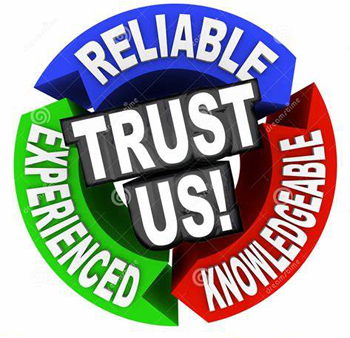Grid Tie battery Based Solar Systems
Blue Pacific System Battery Backup Systems and Kits for the DIY

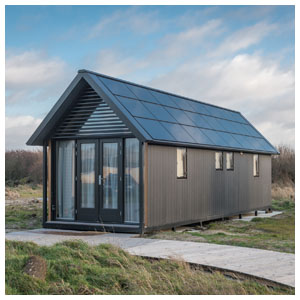
Off-Grid Systems
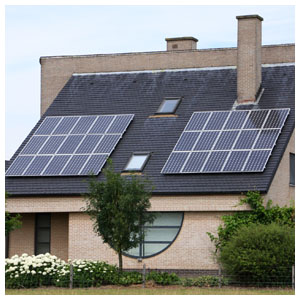
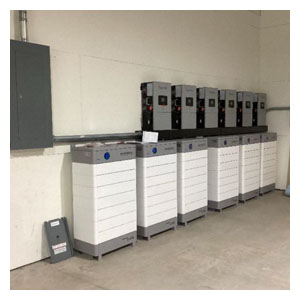
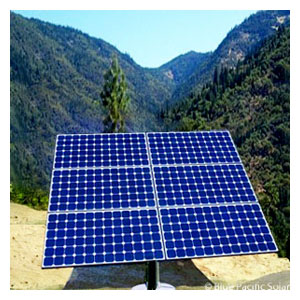
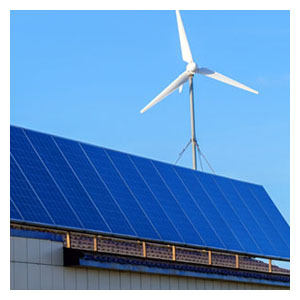






A battery based inverter / charger is an electronic device that converts direct current (DC) power from batteries into alternating current (AC). Each type of inverter has different features that makes it suitable for your unique cabin, backup or off-grid applications.
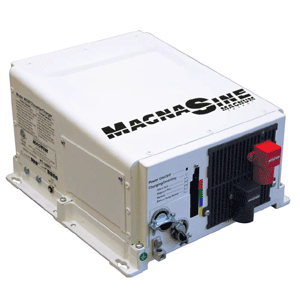

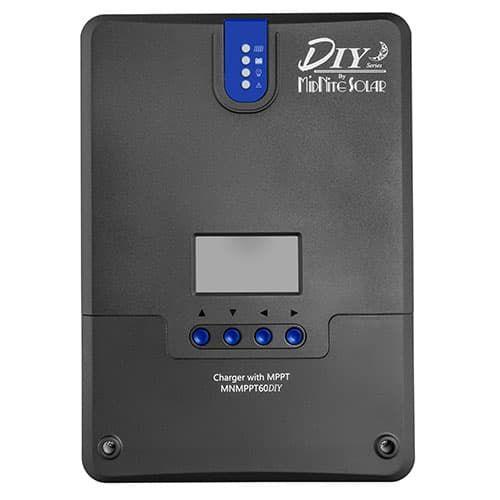

![]() Ideally, for off-grid / grid-interactive
and on-grid inverter wiring, the total voltage drop for the grid-tied AC side should be <1% when possible. When we design complete systems, we do our best to stay under 1.5% (General industry acceptable
tolerance is 1 - 1.5% AC Vdrop). The max. of 1.5% AC voltage drop is all about maximizing inverter up time during Utility voltage swings.
Ideally, for off-grid / grid-interactive
and on-grid inverter wiring, the total voltage drop for the grid-tied AC side should be <1% when possible. When we design complete systems, we do our best to stay under 1.5% (General industry acceptable
tolerance is 1 - 1.5% AC Vdrop). The max. of 1.5% AC voltage drop is all about maximizing inverter up time during Utility voltage swings.
Battery backup solar kits, also known as solar power backup systems, combine solar panels with energy storage batteries to provide reliable power during periods of low sunlight or grid outages. These kits are designed to harness solar energy, store it in batteries, and then supply electricity to your home or appliances when needed.
A solar battery backup system allows you to store the excess energy generated by your solar panels during the day. This stored energy can be used during power outages or during the night when the sun is not shining. It reduces your dependence on the electrical grid and gives you more control over your energy usage.
One of the main advantages of a solar battery backup system is that it provides a reliable source of power during blackouts or other grid failures. While traditional grid-tied solar systems are designed to shut down during outages for safety reasons, a solar battery backup system can continue to power your essential appliances and devices.
By storing excess solar energy and using it during peak demand times or during power outages, you can reduce your reliance on grid electricity. This can lead to significant cost savings on your electricity bills over time. Additionally, if your utility company offers net metering or time-of-use pricing, you can take advantage of selling excess electricity back to the grid or using stored energy during high-cost periods.
Solar energy is a clean, renewable energy source that helps reduce greenhouse gas emissions and dependence on fossil fuels. By investing in a solar battery backup system, you can further maximize the use of clean energy and minimize your carbon footprint.
Solar battery backup systems can also provide benefits to the electrical grid as a whole. During times of high demand, when the grid is strained, stored energy from distributed battery systems can be used to support the grid, alleviate peak load, and improve overall grid resilience.
Having a solar battery backup system enhances your emergency preparedness. It ensures that you have a reliable source of power for critical appliances, such as refrigerators, medical equipment, or communication devices, in case of natural disasters, severe weather events, or other emergencies.
It's important to consider your specific energy needs, the capacity of the battery system, and the cost-benefit analysis before investing in a solar battery backup system. Consulting with solar energy professionals can help you determine the right system size and configuration for your requirements.
When choosing a battery backup solar kit, consider factors such as your energy needs, available sunlight, battery capacity, and the efficiency of the components. It's also important to consult with a professional installer to ensure proper system design, installation, and compliance with local regulations.
Battery-based grid-tied systems have the capability of not only exporting electricity back to the utility grid much like a conventional grid-interactive system, but also can operate off-grid creating a micro-grid within the home. There are a number of systems Blue Pacific Solar has available that will operate in this capacity but they require a litte more homework on the part of the homeowner the first of which is an understanding what makes these solar systems different.
Conventional battery-based grid-tied system inverters use the solar panel system to recharge the batteries via a charge controller much the same way an off- grid system would be used. The difference being a grid interactive inverter pulls power from the battery bank while syncing with the utility grid to push electricity back to the homes service lines. You could have multiple solar panel arrays putting energy into the battery bank and one inverter selling or exporting power to the grid. You could also have one charging source and multiple inverters selling to the grid. In short, your charge controller simply charges your battery bank. You’ll want to size your battery bank for your backup needs, and make sure the charge controller for your charging source has an output voltage compatible with your battery bank. We highly recommend you use a 48V battery bank for the majority of homes in these situations. The inverter in a battery-based grid-tied system is not directly coupled or matched to the charging sources. It only needs to be large enough to handle the total charging wattage of your sources, so it will be able to send excess energy back to the grid even in times of peak production. The inverter, of course, also needs to be able to have the capacity to run all the backup loads you might want on at one time.
The specific configuration will depend on your situation. Perhaps you are already familiar with batteryless grid-tied systems, which couple a specific solar array to a specific inverter the two must be matched to work properly. Blue Pacific Solar is one of only a handful of suppliers that have done the design work to customize a specific inverter to work safely and effectively with complete battery-based systems. Grid-tie with battery backup systems are definitely not a situation where you can buy solar panels then go shopping for an inverter. You should buy the power center specificaly designed to work with the correct battery bank that is large enough to handle your critical load circuits.
Blue Pacific Systems offers battery backup systems that integrate with solar panels or can be charged from the grid. These systems store excess energy generated by solar panels or draw power from the grid during times of low electricity demand. The stored energy is then used to provide backup power during outages.
Blue Pacific Systems' battery backup systems are designed with DIY installation in mind, making it easier for homeowners and small businesses to set up their own backup power systems. The systems come with comprehensive installation manuals and support materials to guide users through the installation process.
A typical Blue Pacific battery backup system includes components such as batteries, an inverter, charge controllers, and monitoring equipment. The batteries store the electrical energy, while the inverter converts the DC energy stored in the batteries into AC power for use in the home or business. Charge controllers manage the charging and discharging of the batteries, ensuring efficient operation and prolonging battery life. Monitoring equipment allows users to track the system's performance and energy usage.
Blue Pacific Systems' battery backup systems are designed to be expandable, allowing users to start with a basic setup and add additional components or capacity over time. This flexibility enables system owners to adapt to changing energy needs or increase their backup power capabilities as desired.
Blue Pacific Systems provides technical support to customers during the installation process and offers warranties on their products. They also have online resources and documentation to assist users with troubleshooting and maintenance.


